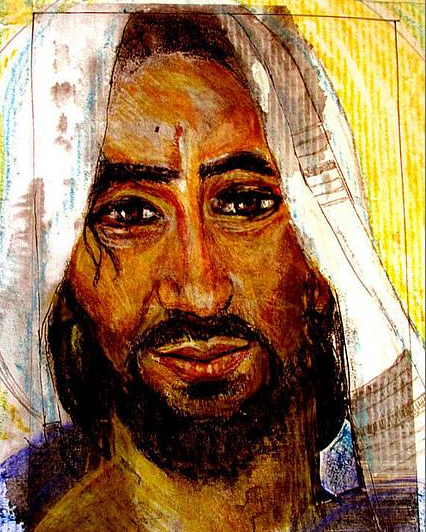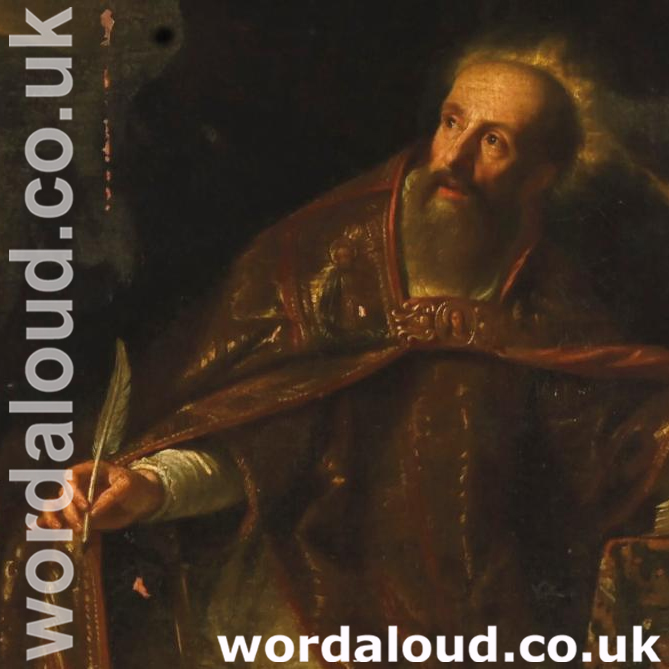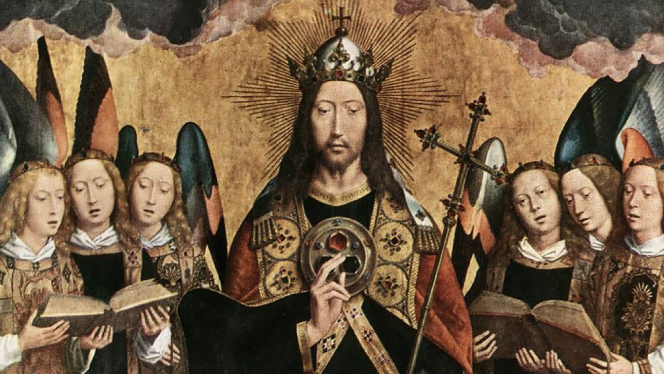Christian Art | The Leaven Of The Pharisees | Love Revealed By Jesus Christ
Luke 12: 1-7 – Week 28 Ordinary Time, Friday (King James Audio Bible KJV, Spoken Word)
1 IN the mean time, when there were gathered together an innumerable multitude of people, insomuch that they trode one upon another, he began to say unto his disciples first of all, Beware ye of the leaven of the Pharisees, which is hypocrisy.
2 For there is nothing covered, that shall not be revealed; neither hid, that shall not be known.
3 Therefore whatsoever ye have spoken in darkness shall be heard in the light; and that which ye have spoken in the ear in closets shall be proclaimed upon the housetops.
4 And I say unto you my friends, Be not afraid of them that kill the body, and after that have no more that they can do.
5 But I will forewarn you whom ye shall fear: Fear him, which after he hath killed hath power to cast into hell; yea, I say unto you, Fear him.
6 Are not five sparrows sold for two farthings, and not one of them is forgotten before God?
7 But even the very hairs of your head are all numbered. Fear not therefore: ye are of more value than many sparrows.
We can almost feel the crush of people pressing in upon Jesus, treading on each other’s toes and clamouring for a glimpse of him. This great tide of popularity is extraordinary. We are made aware of just how much so many people need something other than what they have – of how many unanswered questions they must have and of the spiritual longing they must experience. They are sheep in want of a shepherd. There is a great vacuum which Jesus comes to fill.
It is in the context of this great crowd of people who need Jesus so much that Jesus tells his disciples to beware of the leaven of the Pharisees, leaven being the yeast bearing piece of dough from a previous bake that can be used to start new dough fermenting. Whereas that little piece of leaven should bring about a good, wished for transformation to the new dough, the leaven of the Pharisees is, instead, corrupting. It is hypocrisy. The way the Pharisees live is, we are told, vicious, and contrary to what they preach.
Here, before Jesus and his disciples, are a people in need of good leaven.
Jesus tells us that that which is hidden will be revealed. Hypocrisy will be exposed, elabourate concealments of vice stripped away. Conversely, good will also come to light – the inner truth of each one of us, known to God, will be revealed to all. The image Jesus presents is of discussion on the rooftops, where people would gather to chat and while away the hottest part of the day. It is in such a familiar, everyday milieu, hardly apocalyptic in character, that truth will be known.
We are warned to respect the judgement at our end time. We are known to God in every detail and there are evils in this life we must resist. Jesus’ teaching arms us to counter such evils – such as the threat posed by the temple authorities – because they cannot really harm us; they can only get to our flesh; in spirit, we can be immune. Jesus teaches us also that God our Father loves us. We are of immense importance in God’s eyes. God’s watching over us is paternalistic in character; He is not some sinister figure demanding craven servility. Our fear flows from our wish not to displease God, because He is our Father and He is wholly good. We are in the hands of providence.
Concluding Prayer | Love Revealed By Jesus Christ
Lord God, bestow a full measure of your grace on us. As you work within us to keep us in the path of your commandments, may we receive consolation in this present life and eternal joys in the next.

King James Audio Bible | Endnotes
What Is Leaven?
In baking, leaven refers to a small piece of dough that is saved from one batch and used to start the next batch. This is known as a sourdough starter, and it contains wild yeast and bacteria that ferment the dough and cause it to rise. The process of making bread with a sourdough starter can take several days, as the starter needs time to ferment and develop the desired flavor and texture.
In the Bible, leaven is used both as a metaphor for the good that Jesus’ disciples might promulgate, and in negative aspect as a sign of sin, corruption, or false teachings – this being the leaven of the Pharisees.
In Matthew 16:6, Jesus warns his disciples: ‘Take heed and beware of the leaven of the Pharisees and of the Sadducees.’ Here, Jesus is referring to the corrupt teachings of these religious leaders, which could lead his followers astray.
The Apostle Saint Paul uses the metaphor of leaven in his letters to the Corinthians and the Galatians. In 1 Corinthians 5:6-8, Saint Paul writes: ‘Know ye not that a little leaven leaveneth the whole lump? Purge out therefore the old leaven, that ye may be a new lump, as ye are unleavened. For even Christ our passover is sacrificed for us: Therefore let us keep the feast, not with old leaven, neither with the leaven of malice and wickedness; but with the unleavened bread of sincerity and truth.’ Here, Saint Paul is warning the Corinthians to avoid the corrupting influence of sin and to strive for sincerity and truth in their faith.
Similarly, in Galatians 5:9, Saint Paul writes: ‘A little leaven leaveneth the whole lump.’ Saint Paul is warning the Galatians against false teachings that could corrupt their faith and lead them away from the true Gospel.








